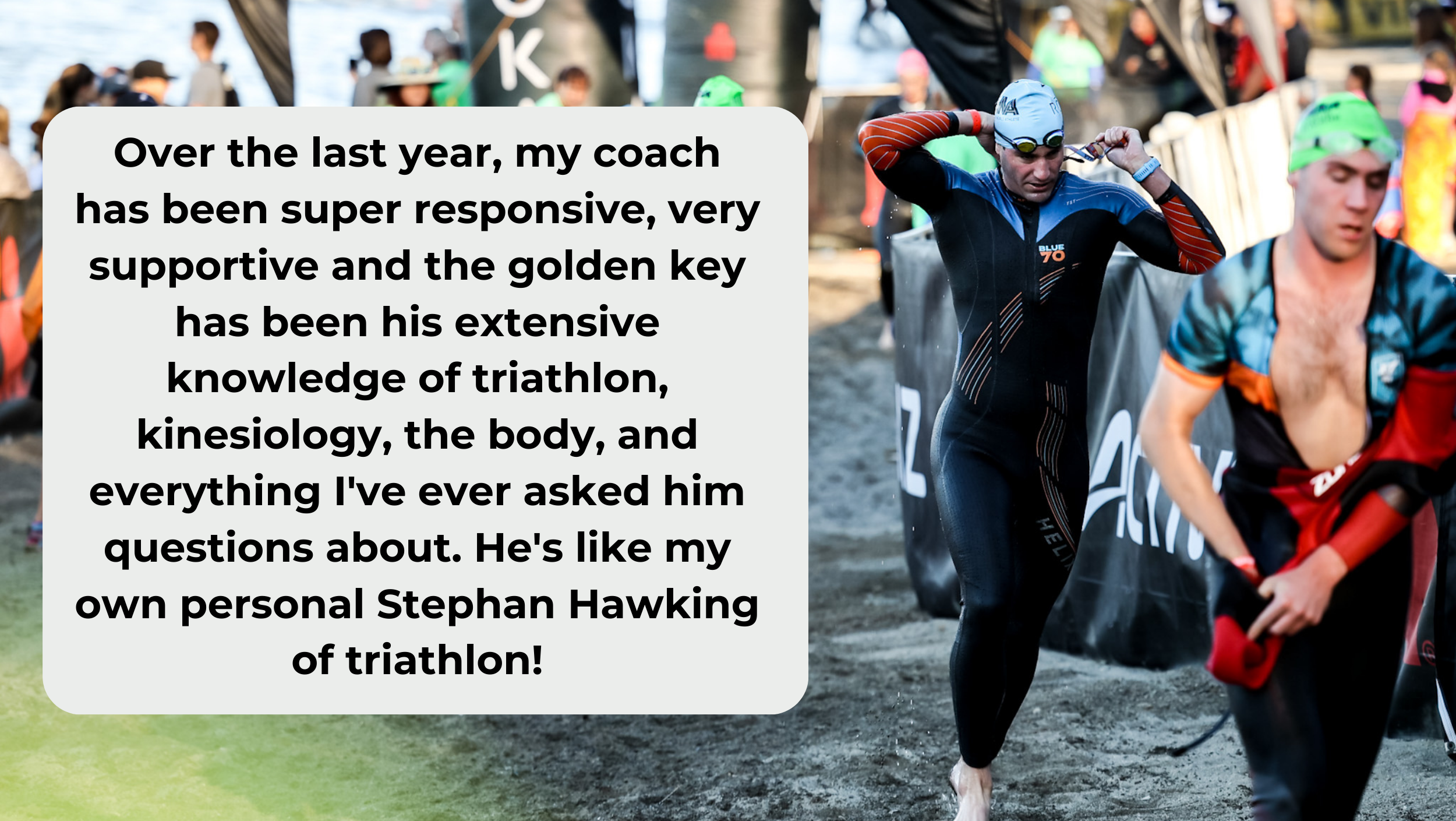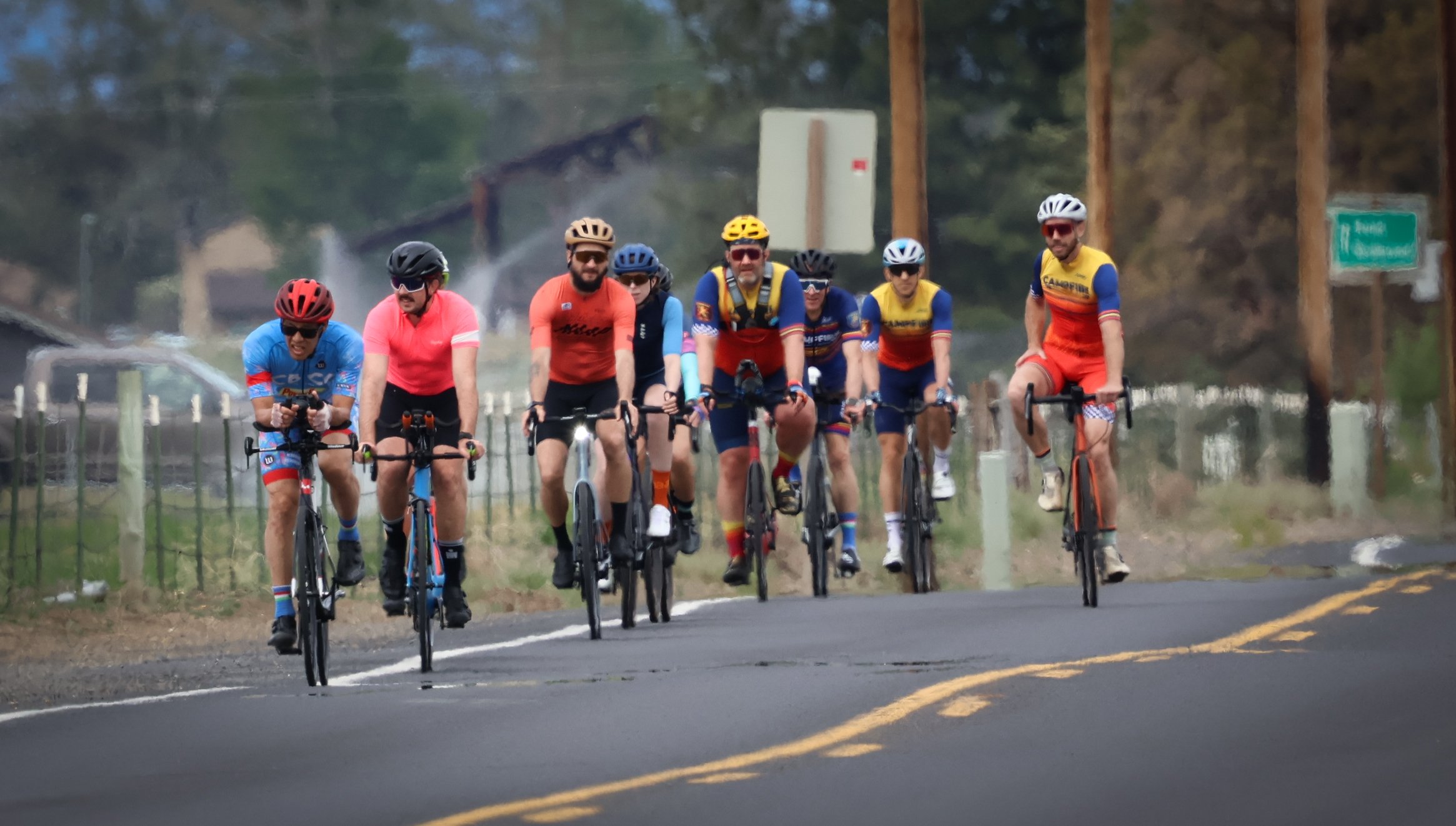How Does Remote Coaching Work?
The cost (and value) of modern endurance coaching
Mastery can be an elusive goal, but when you achieve it, few things feel better. A masterful athlete is one who know the right decision to make at the right moment: whether to go hard or easy, whether to eat or drink right then, whether to stay in bed and rest or get up and go to the pool. Masterful athletes understand their bodies, how different environments affect those bodies, and how they should adjust their approach to any given situation. Think of a master crafter, who always seems to know which tool to grab or which cut to make. When you are a masterful athlete, you know what to do and when to do it.
At Campfire, our goal is to lead you to mastery, so you can be your own coach in those moments that we can’t be there for you (i.e., when racing). When you achieve mastery, your races will be wholly your own, and you will feel responsible for your successes (and those hard days when you are also responsible for your mistakes, which you will make and you will learn from).
Through our approach, hammered out over the past decade, we teach athletes first to understand their bodies, and then what different levels of effort mean to those bodies in terms of numbers and data, and then how to apply those bodies, efforts, and intensities on the race course, leading to the highest probability of success.
Just this past weekend, manning our tent at a local triathlon, several athletes stopped by to say hello, grab a S’more from us, and talk about coaching. Almost every one of them asked “So, is there any in-person coaching as part of your service?”
It’s always a fraught moment, but by this point we’re super comfortable with our answer, which is “No, but we do offer that as an add-on to the coaching package if you’re interested.”
Early on in our coaching life, we would hem and haw because we were worried that if we said a straightforward “No” people would simply walk away. What we’ve learned, over the years, is that people just don’t know how remote coaching works, and that once they experience this style of coaching (executed properly), there is no loss of value.
It’s an understandable misconception. When people think of a coach, they think of what they experienced in high school, or on the screen while watching Ted Lasso or their favorite sporting team. For team, skill-based sports, in-person coaching is probably necessary (let’s briefly pause for the thought experiment of a decentralized football practice—hilarious), but for individual endurance athletes, remote coaching is just as good as (and in some cases, superior to) in-person instruction. Obviously, we’re biased, and you should take that into account, but today we’ll walk you through how our remote coaching works, break down the actual time that goes into your plan, and show you where your coaching dollars are going.
How it Works
Once you’ve talked to a few of our excellent coaches and settled on your coach, this is what happens:
You fill out an extensive questionnaire that gives your coach the information they need to work on your plan.
You have your first 45-minute phone call (you get two of those every month) with your coach to go over the questionnaire in detail, and for you to give your coach the context they need to understand you as an athlete: your goals, your hopes, your current fitness level, your strengths and weaknesses, and your available time.
Your coach crafts a season-long plan (usually called an Annual Training Plan or ATP) that they may or may not share with you (they’re happy to share if you ask). That ATP is the document that informs how they structure your training for the year.
Your coach writes your first three-week block of training. Why three-week blocks? We want you to see what you have coming down the proverbial pike so you can plan your existence. For the coach, a three-week block is a substantial portion of the athlete’s training year—something around 6% of a 50-week season! Since they’ll only repeat this process a limited number of times each year, they know they need to write the plans in a way that will set the athlete up for the success they seek.
Every time you finish a workout, your coach will encourage you to send them some information, via the TrainingPeaks comment feature or via text/email (athletes get unlimited text/email contact at Campfire—we just ask that those texts come in during business hours!). We have a rule that if an athlete leaves a comment, they get a comment in return, so your notes and questions will never go unanswered.
Twice a month you have phone calls with your coach to go over the workouts completed, questions you might have about technique, or fueling, or pacing. These phone calls make the backbone of what we do at Campfire, since hearing an athlete’s voice and giving them a chance to talk is superior to the context-free world of email, text, or workout comment. It’s how your coach gets to know you, and elevates their ability to write your plan. They hear your voice and can tell if you are tired or motivated, which allows them to shift the plan as is needed.
As we just said, based on those phone calls your coach changes the plan based on your time, goals, execution of the training, sicknesses, injuries, job changes, marriages, births…everything, really. One of the things we do well at Campfire is responding to everything that happens in an athlete’s life, since we are coaching a body that is experiencing that particular life.
Finally, your coach will write a plan for the big races on your calendar, the ones at which you really would like to get a good result. Some smaller races your coach may treat as a workout, but you’ll always get some guidance as to how you should be approaching your events.
The Cost and the Value
As someone smarter than us once said, “Cost is what you pay, but value is what you get.” That is totally true at Campfire. Our coaching fees run from $250/month for our Coach Accelerator coaches up to $500/month for our Head Coach. Many athletes see those number and, at first, think they are fairly eye-popping. We’re gonna break down what goes into the above work and show you that, even at the highest level, our cost per hour is fairly low. And what do you get as a Campfire athlete? Well, you get coached the way that professional endurance athletes do, with a flexible, bespoke training program crafted entirely for you.
We expect our coaches to spend between eight and ten hours a month on their athletes. Our Staff Coaches carry about ten athletes each, making their monthly load around 80-100 hours, or 20-25 hours each week. What goes into those eight to ten hours?
Phone calls
Commenting thoughtfully and thoroughly on your workouts
Building (and tweaking, which takes plenty of time) your annual plan
Crafting workouts that complement your current fitness and goals in a sensible progression
Replying to email and text
Writing individualized race plans
Spectating events from afar, which usually means sitting at a computer on weekend mornings hitting “refresh” on a race feed
Continuing to hone their coaching craft
For our $250/month coaches, their hourly rate ends up being about $25-30/hour, which is well below what you would pay for any expert to work on your house, your body, your brain, your finances, or your legal needs. Our Master Coaches are in the $45-55/hour range, which reflects the fact that all of our top-level coaches have raced extensively and built decades of coaching experience. As the apocryphal fan once said to Picasso, “How could that cost $20,000? You just scribbled that on the napkin in ten seconds!” only to hear in reply “That didn’t take ten seconds—that took 30 years.” Great coaches are like any master of their field—they’ve worked some large number of hours (maybe it’s 10,000, Mr. Gladwell, but it could be a little less or a little more) at mastering their craft.
Given the time requirements of what we’ve laid out above, adding in-person coaching to the list would be cost-restrictive. For one workout your coach would need to travel to you, run a session, and travel back to their desks. Some of that time could be defrayed by a physical location, but then there is rent, overhead, etc…to factor into the cost. Just one session for a Staff Coach would run about $75-90 per session in that coach’s time alone, not to mention their expertise. So we keep that option reserved in case you feel that it’s something you need, rather than something you want.
BUILT TO SUIT
Why did we write this post? We are sure that we will continue to field questions such as the one that we opened with, and that’s fine, but spelling out our process and the value you receive. We’ll close with a REAL quote about one of our coaches from one of his real athletes, and we hope this helps dispel the myth about how coaches work in our world.
“So, long story even longer, I am grateful for my coach, grateful they are a part of your team, super stoked by their depth of knowledge and looking forward to another year of racing with their guidance. Not that I want you to raise their rates (even if you did, I'd keep him) but they are WAY underpaid for what they bring to the table!”





